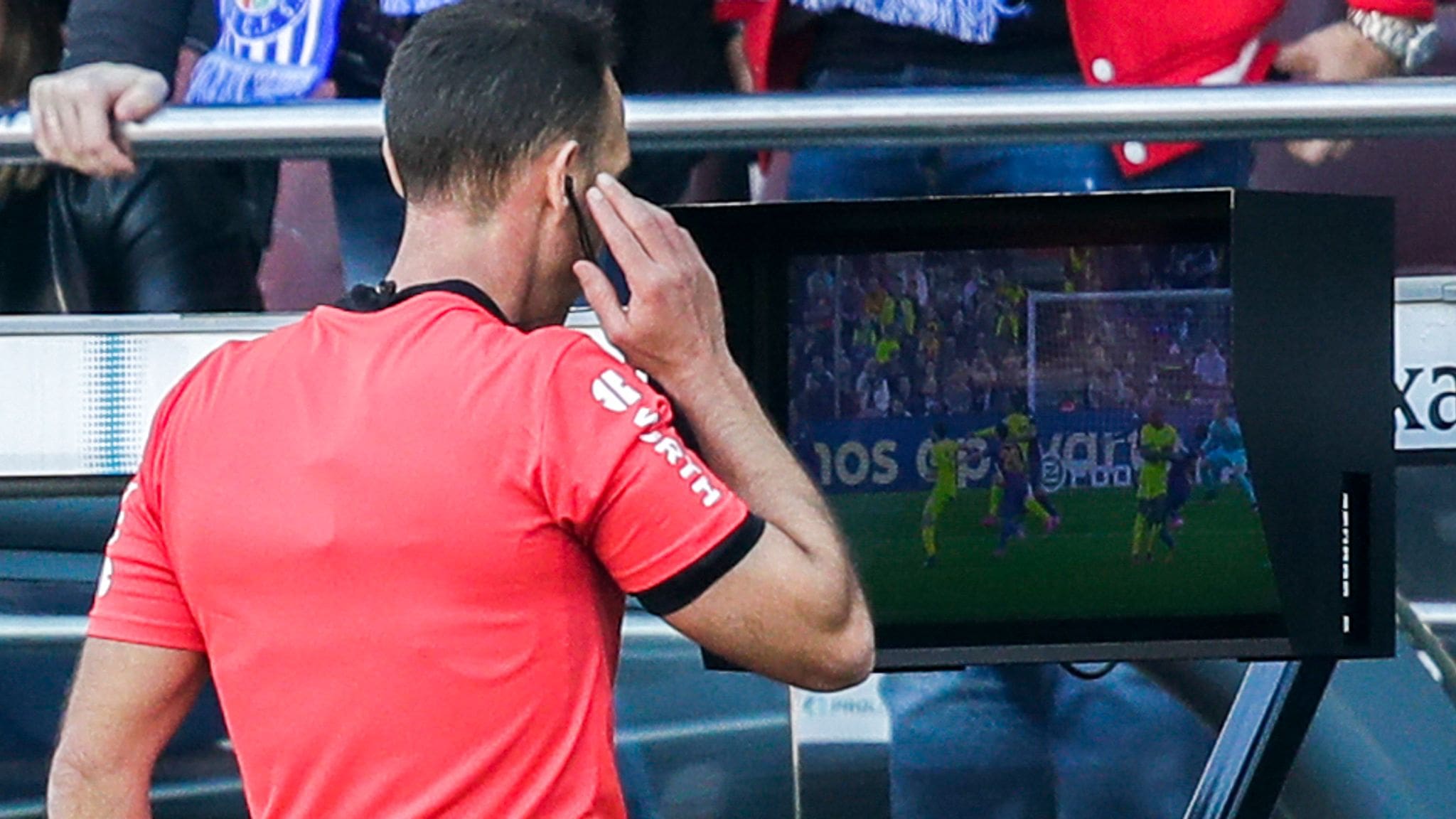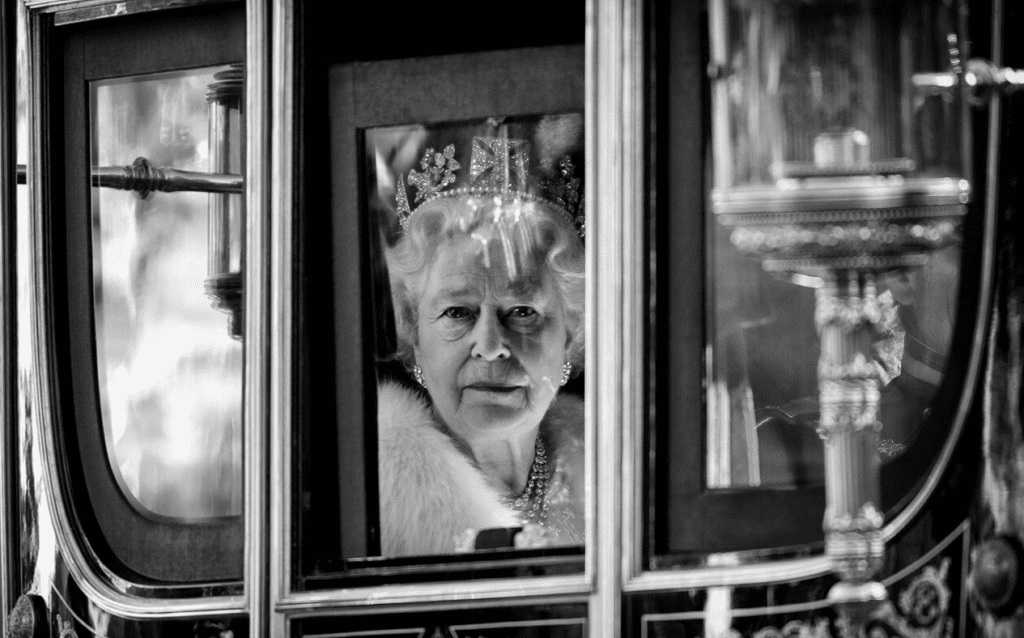

Why VAR is like the Lockdown Policy – a Solution that Makes the Problem it’s Supposed to Solve Even Worse
Anybody paying even a millisecond’s worth of attention to the sports news over the weekend will have been unsurprised to see VAR-related controversy dominating events yet again. For David Moyes the deployment of the technology was “scandalous, rotten, incredible”; for Danny Murphy it was “incompetence at its highest level” (surely “lowest”?); for Alan Shearer it was simply “beyond terrible”. One generation goes, and another generation comes; but football pundits’ ire for match officials remains forever.
‘VAR’, or the ‘Video Assistant Referee’ – basically, a system by which football referees can be ‘advised’ by a remote counterpart during the course of a match – has now been in use in the English Premier League for three years. It is fair to say that it has always been accompanied by controversy, and what were once dismissed as ‘teething problems’ now really have to be seen as permanent features of the technology: it simply doesn’t work very well, for the obvious reason (well, it should have been obvious to anybody with half a brain, anyway) that football’s charm derives from the fact that it is fast-paced and fluid. Breaking from the action – what a romantic might call the narrative sweep of the match – to second-guess the referee’s decisions undermines much of the sport’s appeal. And football’s laws are a poor fit for video-assisted decision-making. Almost none of the ones that really influence the course of a game – the offside rule, fouls and misconduct, the use of yellow and red cards – are entirely questions of fact, but rather offer wide room for interpretation (was a player ‘interfering with play’?; did the player make his body ‘unnaturally bigger’?). They often cannot be resolved satisfactorily simply by looking at a slo-mo replay, meaning that the video assistant’s judgment is always going to be called into question after the fact in exactly the same way the referee’s always have been. Football is therefore not like cricket or tennis, which by their nature comprise small chunks of action punctuated by lengthy pauses in which there is time for reviews to take place, and for which an umpire’s main decisions are largely questions of fact (“Did the ball touch the bat?”; “Did the ball go behind the service line?”). Football is a sport which, if anything, benefits from very light-touch regulation, with the match officials stepping in where necessary but erring on the side of letting things flow.
The introduction of VAR can therefore be understood as a variant of the so-called ‘cobra effect’ – a purported remedy for a problem which not only fails to work, but makes the original problem worse (and also creates new ones). According to anecdote (probably apocryphal), during the era of the British Raj a colonial official somewhere in India, concerned about deaths from snake bites, offered a bounty for dead cobras. Many cobras were handed in for rewards, but strangely the number of cobra bites did not seem to decrease. After investigation the official discovered that enterprising locals were simply breeding captive cobras, killing them, and handing them in. He therefore scrapped the reward programme, whereupon the locals released all their captured cobras and their population thus ultimately increased. All that was achieved was the waste of great expense and the precise opposite effect than had been originally intended.
The introduction of VAR technology into football has, similarly, somehow managed to make the original problem – pundits and managers criticising referees’ ‘wrong’ decisions – even worse, while also generating fresh problems of its own (a worse matchday experience for fans in the stadium, a less entertaining spectacle for people watching on TV, and an awful lot of wasted money). We would have been much better off if it had never been introduced at all.
The first moral of the VAR story is that technocratic solutions are very often like this – ineffective in resolving the original problem, creating of new ones, and being enormously wasteful to boot. The ne plus ultra of this phenomenon in recent decades is of course lockdown, an enormously expensive intervention of vast scale that not only failed to stop the spread of Covid but also managed to cripple the NHS, ruin children’s educations, lay waste to the mental health of a generation, and flush the economy down the toilet. Yet, depressingly, we often show a remarkable reluctance to abandon such measures even when it should be evident that their net results are negative. I have no doubt that, as with politicians pursuing lockdown, football’s governing bodies will continue down the VAR road long after they should have realised the experiment was a dismal failure. Arguably, we are already long past that point.
The second moral of the story is that human beings have a blind spot when it comes to technology – if a purported technological solution for a problem appears to exist, we will immediately privilege it over our own, natural capabilities even when the evidence is staring us in the face that the technology is flawed. In the case of lockdowns, of course, we persisted in all of the technocratic claptrap about social distancing, masks, plastic screens and test-and-trace even when it was patently evident that they didn’t work, rather than trust our own basic common sense about ways of avoiding disease transmission. In the case of VAR, the footballing authorities remain obsessively wedded to implementing the technology even though it is plain to any regular match-going football fan that the sport was a heck of a lot more fun when it was just run by the human beings running around on the pitch while the match was being played.
None of this suggests it is likely that we will ever see the back of VAR, and football will be forever diminished as a result. We just have to be thankful that the consequences of some technocratic solutions – lockdown and the infamous cobra bounty, for example – are simply so bad and so obvious that not even their most ardent supporters can keep up the charade forever.
Dr. David McGrogan is Associate Professor of Law at Northumbria Law School.







